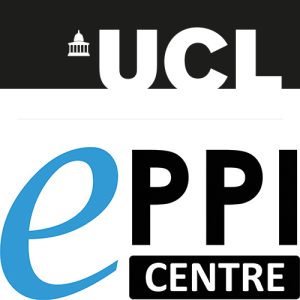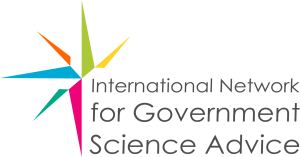Global evidence networks

IPPO’s global research and communication partners
EPPI-Centre, UCL

The Evidence for Policy and Practice Information and Coordinating Centre (EPPI-Centre) is a lead partner in the International Public Policy Observatory. EPPI-Centre is a specialist academic unit in the Department of Social Science, UCL Institute of Education. It develops methods for the systematic review (mapping and synthesis) of research, and studies the processes by which research is made use of in practice.
Professor David Gough is Director of the EPPI-Centre, which is leading on the development of IPPO’s global evidence products including a ‘living map’, evidence briefs and systematic reviews on social science research on COVID-19. The evidence team is supported by Professor James Thomas, Deputy Director of the EPPI-Centre.
COVID-19: a living systematic map of the evidence: In response to the COVID-19 crisis, the EPPI-Centre is maintaining an up-to-date map of the current evidence, partitioned into broad domains for easy exploration.
Blavatnik School of Government, University of Oxford

The Blavatnik School of Government at the University of Oxford exists to inspire and support better government and public policy around the world. As well as teaching current and future public leaders, the Blavatnik School conducts independent, evidence-based research into pressing issues facing policymakers, and has developed the Oxford COVID-19 Government Response Tracker, which will be used to inform much of the IPPO’s work.
The tracker monitors and records government policy responses for more than 180 countries (plus subnational states/regions in Brazil, the United States, Canada and the United Kingdom) using 20 indicators across three broad areas: closure & containment, economic support and health policy. Indicators include stay-at-home orders, school closures, income support, mask wearing mandates and vaccination policies, with data collected by hundreds of volunteers around the world and processed by a small team in Oxford.
Amid the rapidly evolving global situation regarding COVID-19, the data collection is live and ongoing, and the Blavatnik School project team welcomes specific feedback on both data and analysis via this form.
INGSA, University of Auckland

The International Network for Government Science Advice (INGSA), based at the University of Auckland’s Koi Tū: The Centre for Informed Futures, is an international collaborative platform bringing together policymakers, practitioners, national academies, scientific societies and researchers to build capacities, share experiences, and develop theoretical and practical approaches to the use of scientific evidence in informing policy at all government levels.
In March 2020, INGSA launched a COVID-19 information hub with a global Evidence-to-Policy Tracker as its major project (funded by IDRC, the Wellcome Trust and WUN). Leveraging INGSA’s 5,000-strong membership, the project team has recruited expert rapporteurs from 118 countries to track government-led responses to COVID-19 – with a particular focus on the evidence and justifications behind these responses.
The Tracker will provide regular evidence updates for IPPO under project leaders Dr Tatjana Buklijas and Kristiann Allen from INGSA and Koi Tū, supplemented by specific queries sent through the network in response to IPPO requests. INGSA members’ deep knowledge of national and regional contexts is a key asset for the IPPO project, underpinning the selection and use of evidence and government responses.
The Conversation

The Conversation is an independent source of news and views, sourced from the academic and research community and delivered direct to the public. Its team of professional editors works with university and research institute experts to unlock their knowledge for use by an international audience of tens of millions.
From the moment the first suspected cases were announced, The Conversation has been at the forefront of reporting and explaining the latest research on COVID-19 to the general public – investigating the impacts and potential solutions in an accessible, evidence-based way. Now it is bringing that editorial expertise to IPPO, ensuring that all of the Observatory’s outputs – whether written, audio or video – are delivered in an engaging and accessible way, giving policymakers the clearest possible understanding of the evidence behind different responses to the pandemic across the world.
The Conversation’s involvement with IPPO is managed by a new services department run by Matt Warren, a former deputy editor. The editorial manager, Mike Herd, is responsible for overseeing the IPPO website and editing its content, including a wide range of topic blogs, evidence briefs and systematic reviews.
